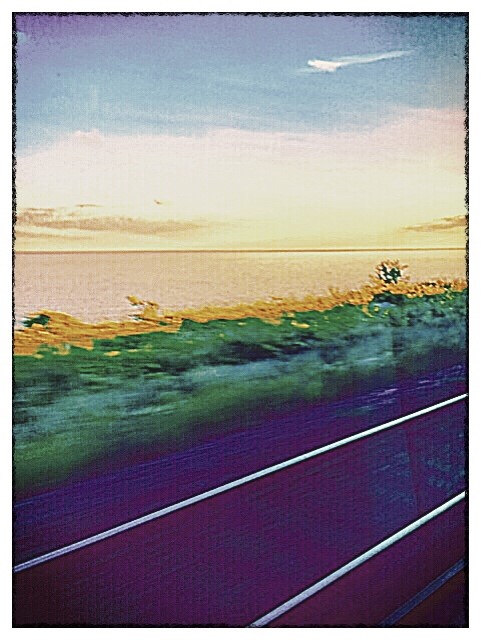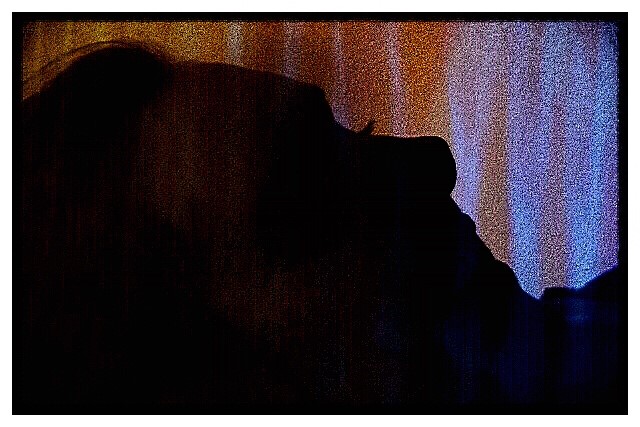
A sleepless summer night. No dreams to placate an unsettled mind, yet, off in the distance, there was a train.
I’m young, I know. I’ve never been anywhere, not on a train, but nowhere even seemed significant. On a train. Lying in bed. The window wide-open, curtains pulled back, allowing any available breeze to circulate through the house. My door is not closed, everyone else is asleep. There are no middle-of-the-night sounds in this little city, except the train.
Night moves, along with the train, and I with it. Each click-clack, click-clack, of the track takes me further along. I am not alone. My eyes might be open as I take in a world streaming by this place I call home. An Imagination stoked by Hardy Boys books and The Wonderful World of Disney, the swoon of the train took me places, long before I even understood the concept of romanticism. Or surrealism.
I travelled the train many times, sitting up with the conductor or hopping a freight car with an errant hobo or two. Occasionally one or two of my friends would be along for the ride as we’d move from city to town; the thrill of travel to a young boy growing up in a city surrounded by wheat and silence.
There were always trains in my dreams, in my life, and near each home in every city I have lived. Until recently. Trains, off in the distance, signaling their place in our world. In one small town the tracks ran straight down the middle. At night you would hear the whistle as the engine approached, or wake to the rumble of the house as it passed through. It never frightened me. I’ve always been comforted, or grounded, by the sounds of a train.
Was it the train stories of Jack Kerouac that pulled me into his prose, or was it reading and knowing that adventure is the foundation for any dreamer’s life?
Trains have a purpose, connecting the country, bringing people together, and moving freight from wherever to destinations unknown. In daylight I would marvel at the layers of cars rolling down the tracks, or wonder what could be contained in the big box cars, or try to make sense of the graffiti sprayed on to the surface. I still do. I still wonder where the train is going. Trains are always on the move.
A train is more than transportation to a young boy, is it more than a toy or electric trainset you would set up in the living room to bide time. A train is adventure.
Adventure is something worthy for a boy to be dreaming about. It is something that boy still does now, as a man. Endless dreams, without notice I will wake from adventures on a train. I meet people and see places. I can be places, on a train, in my dreams.
I may never get back to those faraway places, but finding a train in your dreams indicates you are on the right track of your life’s journey. I’m uncertain whether I am headed in the right direction, and there have been a few significant stops along the way, but, like the train, I continue moving forward.
What made my dreams so hollow was standing at the depot
With a steeple full of swallows that could never ring the bell
And I’ve come ten thousand miles away, not one thing to show
It was a train that took me away from here
But a train can’t bring me home
Tom Waits
Train Song




